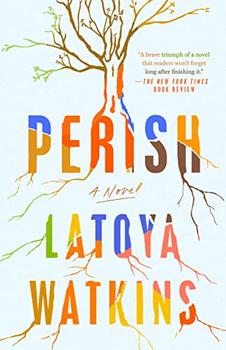Book Club Discussion Questions
In a book club? Subscribe to our Book Club Newsletter!
Please be aware that this discussion guide will contain spoilers!
- Bear it or perish yourself" is a recurring quote we read from Helen Jean throughout the book. Discuss the meaning of this quote and how it affected the characters' lives.
- Perish is told by different narrators, how did their point of view impact your view of their character or other characters in the story?
- Describe how the author creates a distinction between the east and west sides of Jerusalem. And in what ways do you think the areas shaped the family's lives?
- Is there someone to blame for the fate of Wayne (or Alex)? Did you empathize with them? And if so, when and why? Should they be forgiven for their actions?
- There are several significant moments in the novel that revolve around burning a hog. What do you think the hogs symbolize throughout the story?
- Why do you think the author chose to wait to reveal Wayne's name? Discuss your view on why Helen Jean refers to her son as "the monster" before readers know his real name.
- In this multigenerational story, we see the reverberations of the choices made by Helen Jean, and the scars they have left on her children (Wayne, Julie B., Ruby Nell, and Marie) and grandchildren (Alex, Jan, and Lydia). In what ways do those scars reveal themselves, and is it possible to break the cycle?
- "Men can't continue to do this to these girls and go unpunished. This shit stops now. You mark my words." Discuss this quote. Why do you think Helen Jean blamed Soweo for Laverne's disappearance?
- What did you think about the treatment of Wayne from childhood to adulthood? Do you understand the reason behind Helen Jean's actions?
- How did you interpret the ending? Discuss what you think is the overall theme of this story.
Download the full reading guide, including topics to discuss, a letter from the author and a family tree.
Unless otherwise stated, this discussion guide is reprinted with the permission of Tiny Reparations.
Any page references refer to a USA edition of the book, usually the trade paperback version, and may vary in other editions.
